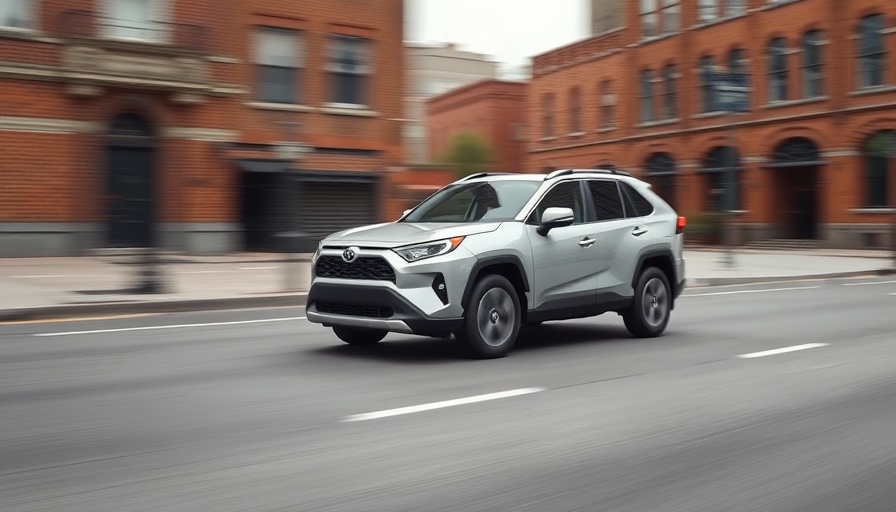
The Rise of the Toyota RAV4 Hybrid in the Automotive Market
The automotive landscape has witnessed significant shifts in consumer preferences over the past few years, particularly leaning towards hybrid and electric vehicles. The latest figures indicate that the Toyota RAV4 Hybrid is outperforming the entire Lexus Hybrid lineup, underscoring Toyota's expertise in hybrid technology. Toyota has established itself as a leader in this market since releasing the first-generation Prius in 1997, and its diverse hybrid offerings continue to capture consumer interest.
Comprehensive Hybrid Lineup: What Makes the RAV4 Stand Out
One of the hallmarks of the Toyota RAV4 Hybrid is its impressive efficiency and performance metrics. With a base price starting at $32,300 and a fuel economy of 41 MPG in the city and 38 MPG on the highway, the RAV4 Hybrid makes a compelling case for those seeking versatility without sacrificing fuel efficiency. Moreover, its 176 HP engine combined with all-wheel-drive accessibility provides a robust driving experience for varied conditions.
Consumer Trends: Why are Hybrid Cars Gaining Popularity?
As fuel prices fluctuate and environmental concerns rise, consumers are increasingly drawn to hybrids for their perceived cost savings and reduced carbon footprint. The Toyota RAV4 Hybrid's growing sales highlight a trend where buyers prioritize fuel efficiency and advanced technology features—a shift that has led Toyota to dominate hybrid sales in the competitive SUV market. Factors such as the reliable performance analysis and high safety ratings further bolster the RAV4's appeal among buyers, particularly those in urban settings where versatility and economy are paramount.
Comparative Insights: RAV4 Hybrid vs. Lexus Models
Interestingly, the RAV4 Hybrid is now selling more units than the entire lineup of Lexus hybrids. This revelation begs the question: what are consumers prioritizing? Lexus provides luxury, yet many buyers appear to prefer the practicality and affordability found in Toyota’s offerings. This divergence speaks volumes about how consumer expectations are evolving—where value and efficiency often trump luxury in the decision-making process.
Feature Set and Performance: What You Get with the RAV4 Hybrid
From advanced infotainment systems that keep drivers connected to cutting-edge safety technology, the RAV4 Hybrid positions itself as more than just a fuel-efficient vehicle. Toyota’s commitment to vehicle reliability and consumer-friendly maintenance practices enhance the ownership experience. Buyers can expect minimal upkeep thanks to Toyota's renowned engineering—an aspect critical to long-term ownership cost effectiveness.
The Future of Hybrid Vehicles: Insights and Predictions
With the demand for hybrids expected to grow as we approach 2024, manufacturers are likely to face increasing pressure to innovate. The RAV4 Hybrid's success may inspire competitors to enhance their hybrid technology and marketing strategies, possibly reshaping the industry landscape. As more consumers become environmentally conscious, hybrid technology’s role in reducing emissions and improving fuel efficiency is undeniable, paving the way for more sustainable vehicle options in the near future.
Conclusion: Navigating the Waters of Automotive Purchases
In a world where fuel efficiency and environmental impact are top priorities, the Toyota RAV4 Hybrid stands out in both sales and consumer satisfaction. Its triumph over the entire Lexus hybrid lineup illustrates not only strong brand loyalty but also reflects a strategic shift in consumer behavior towards value-oriented, reliable driving options. As you consider your next vehicle purchase, take the time to research and understand the features that matter most to your lifestyle.
 Add Row
Add Row  Add
Add 




Write A Comment